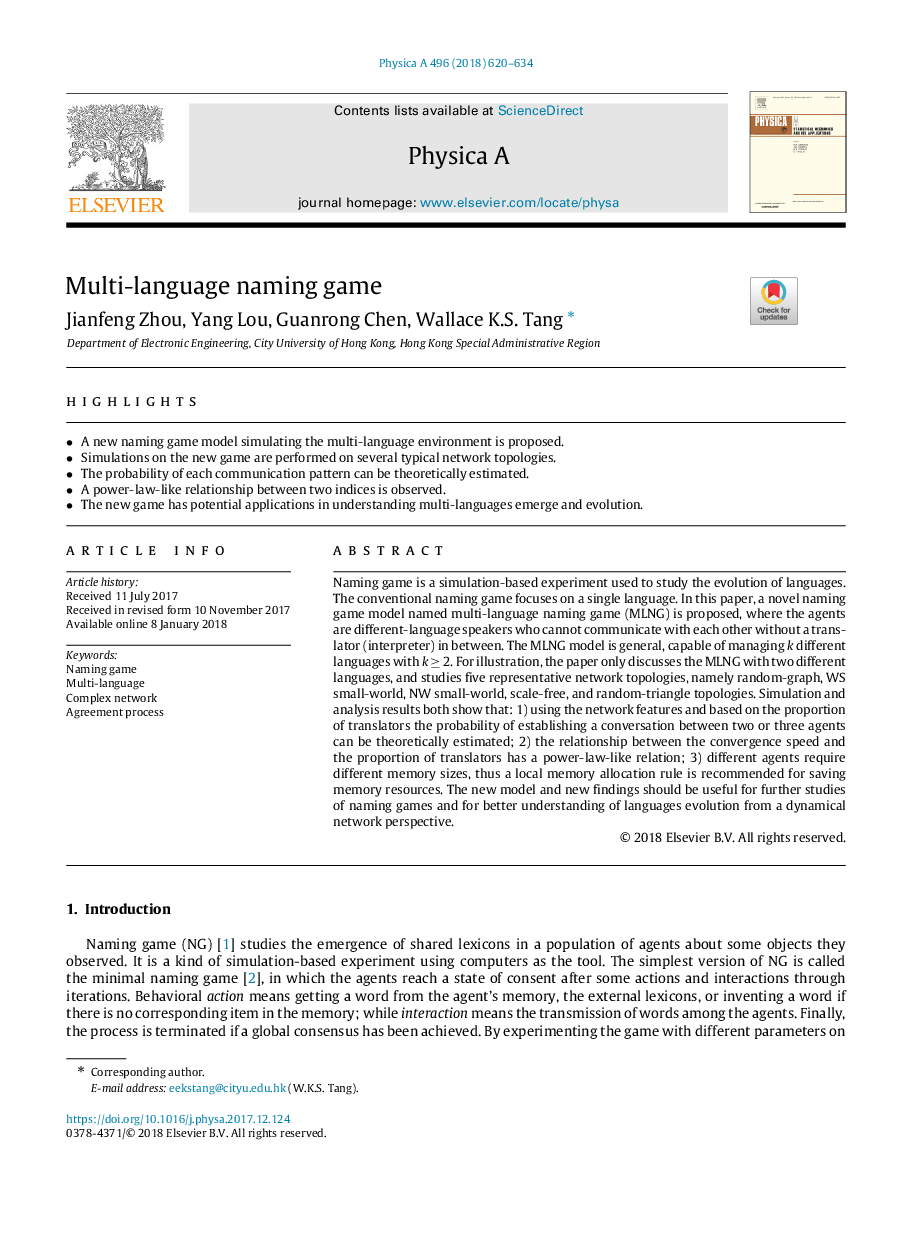| Article ID | Journal | Published Year | Pages | File Type |
|---|---|---|---|---|
| 7376075 | Physica A: Statistical Mechanics and its Applications | 2018 | 15 Pages |
Abstract
Naming game is a simulation-based experiment used to study the evolution of languages. The conventional naming game focuses on a single language. In this paper, a novel naming game model named multi-language naming game (MLNG) is proposed, where the agents are different-language speakers who cannot communicate with each other without a translator (interpreter) in between. The MLNG model is general, capable of managing k different languages with k⥠2. For illustration, the paper only discusses the MLNG with two different languages, and studies five representative network topologies, namely random-graph, WS small-world, NW small-world, scale-free, and random-triangle topologies. Simulation and analysis results both show that: 1) using the network features and based on the proportion of translators the probability of establishing a conversation between two or three agents can be theoretically estimated; 2) the relationship between the convergence speed and the proportion of translators has a power-law-like relation; 3) different agents require different memory sizes, thus a local memory allocation rule is recommended for saving memory resources. The new model and new findings should be useful for further studies of naming games and for better understanding of languages evolution from a dynamical network perspective.
Keywords
Related Topics
Physical Sciences and Engineering
Mathematics
Mathematical Physics
Authors
Jianfeng Zhou, Yang Lou, Guanrong Chen, Wallace K.S. Tang,
